Chromium and Google Chrome needs KDE Wallet to encrypt password file. KDE Wallet supports encryption with GPG key. This article describe how to create GPG key.
Table of Contents
1 Create GPG key with KGpg
Run KGpg. Click "Next".
> kgpg
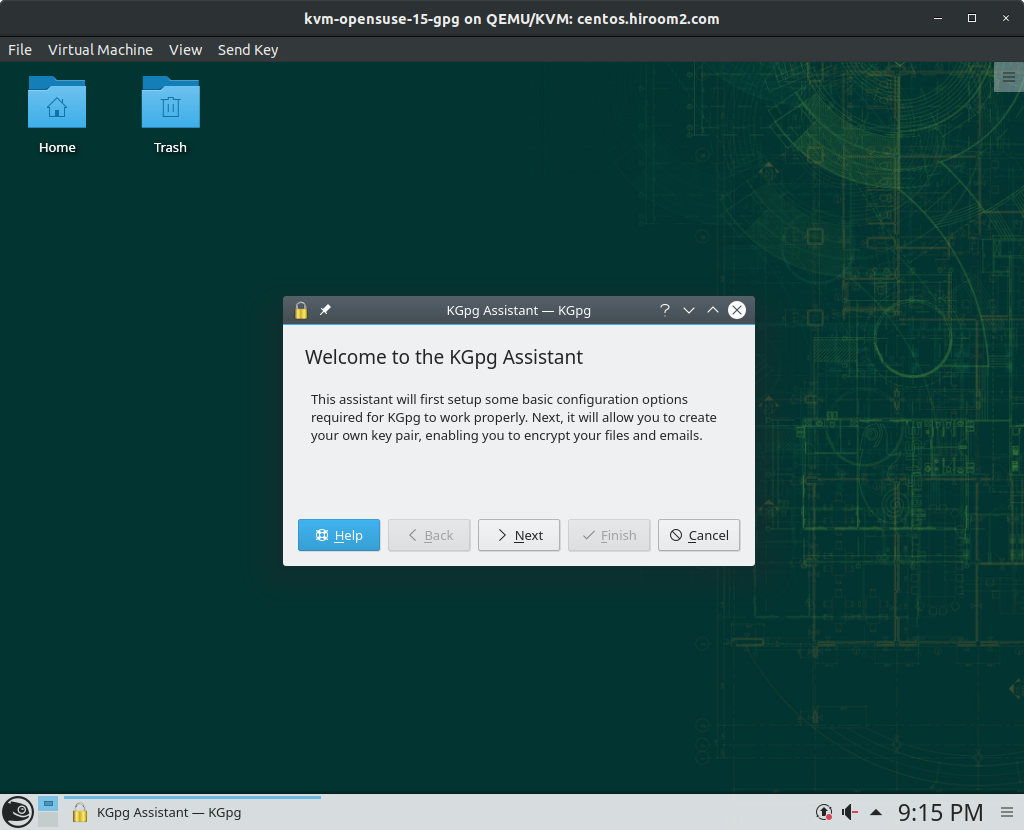
KGpg prompts for the gpg command path. You can use the default /usr/bin/gpg2. Click "Next".
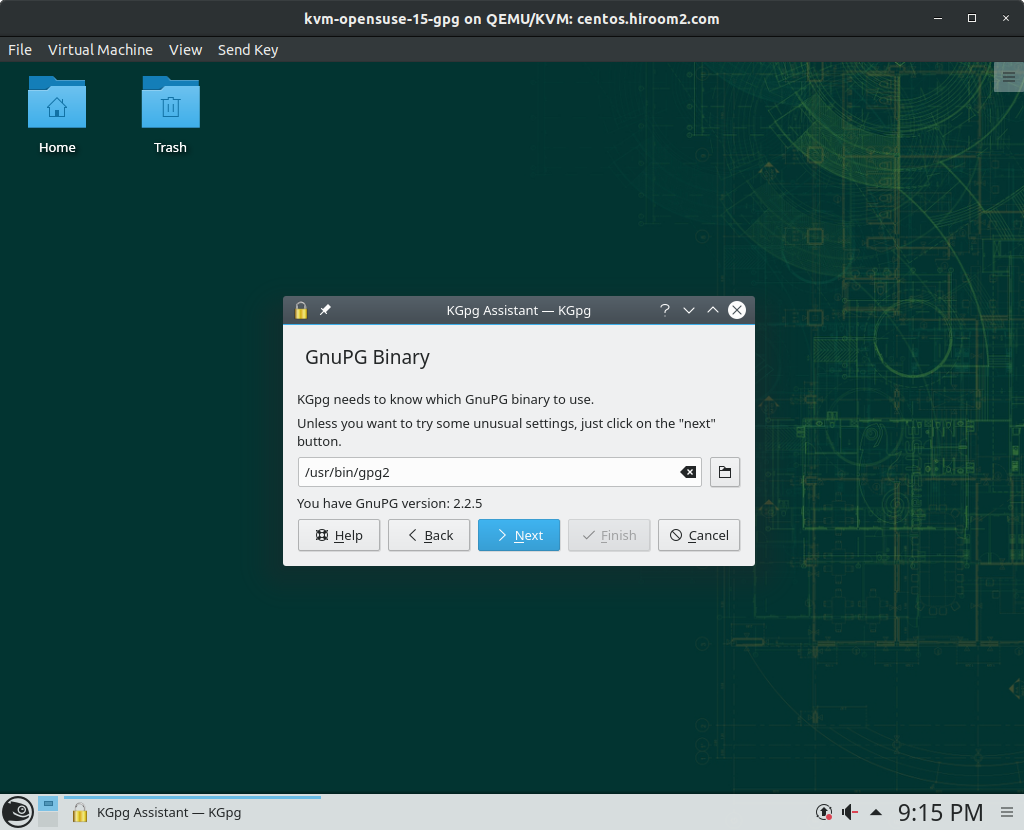
KGpg asks wheather creating GPG config file or not. Click "Create Config".
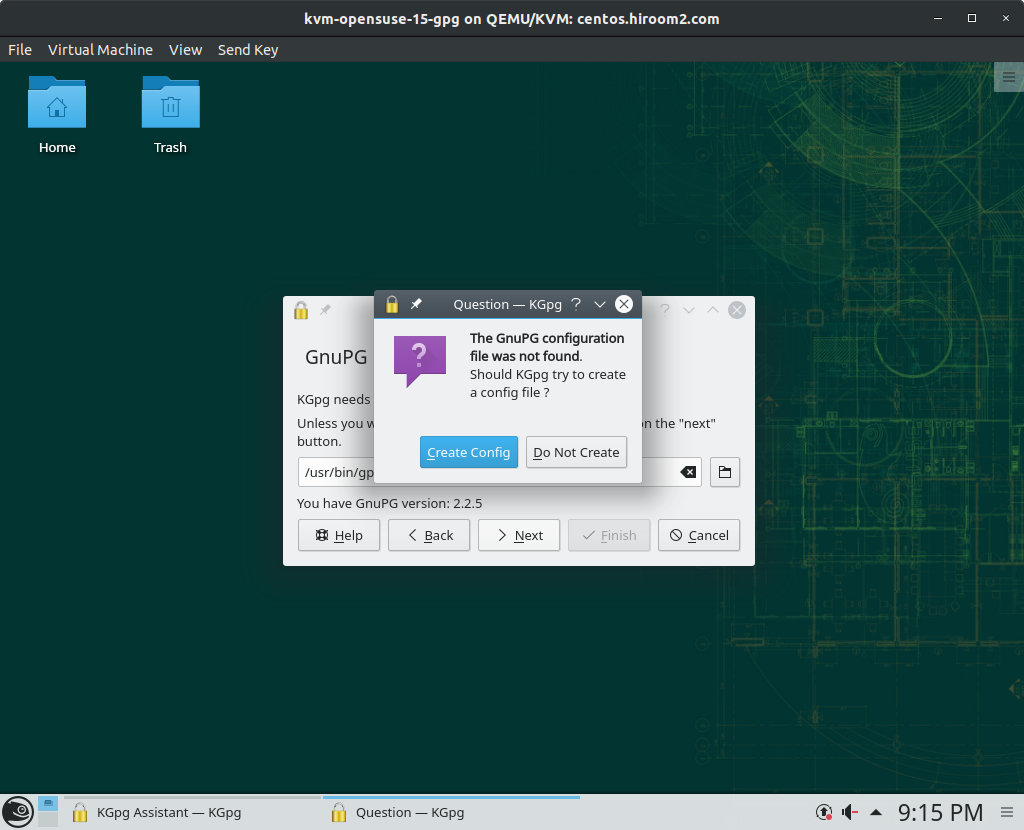
KGpg prompts for GPG config file path. You can use the default ~/.gnupg/gpg.conf. Click "Next".
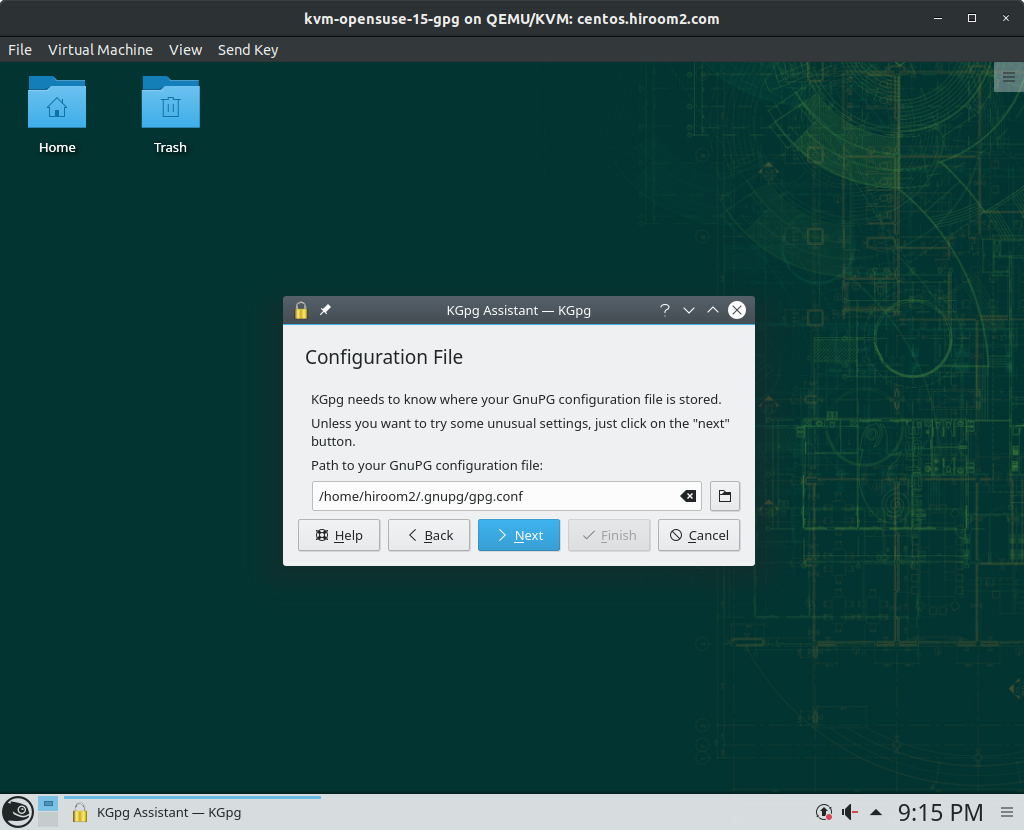
Click "Finish".
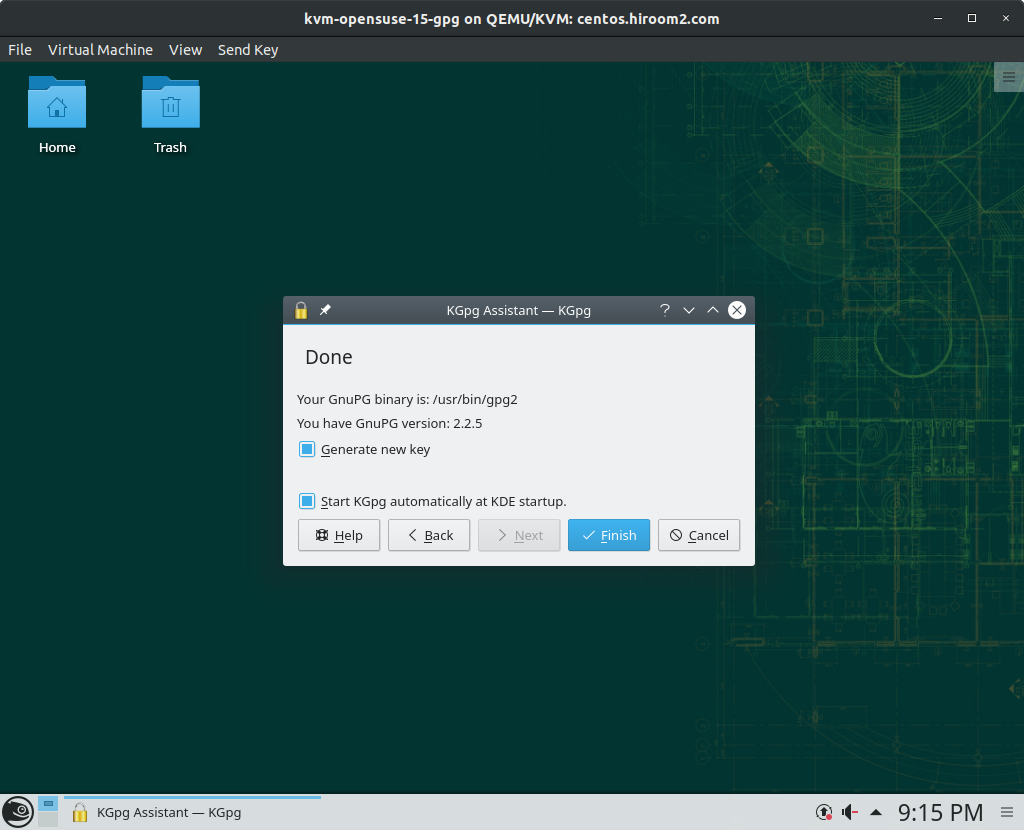
Input "Name", "Email" and "Comment". Click "OK".
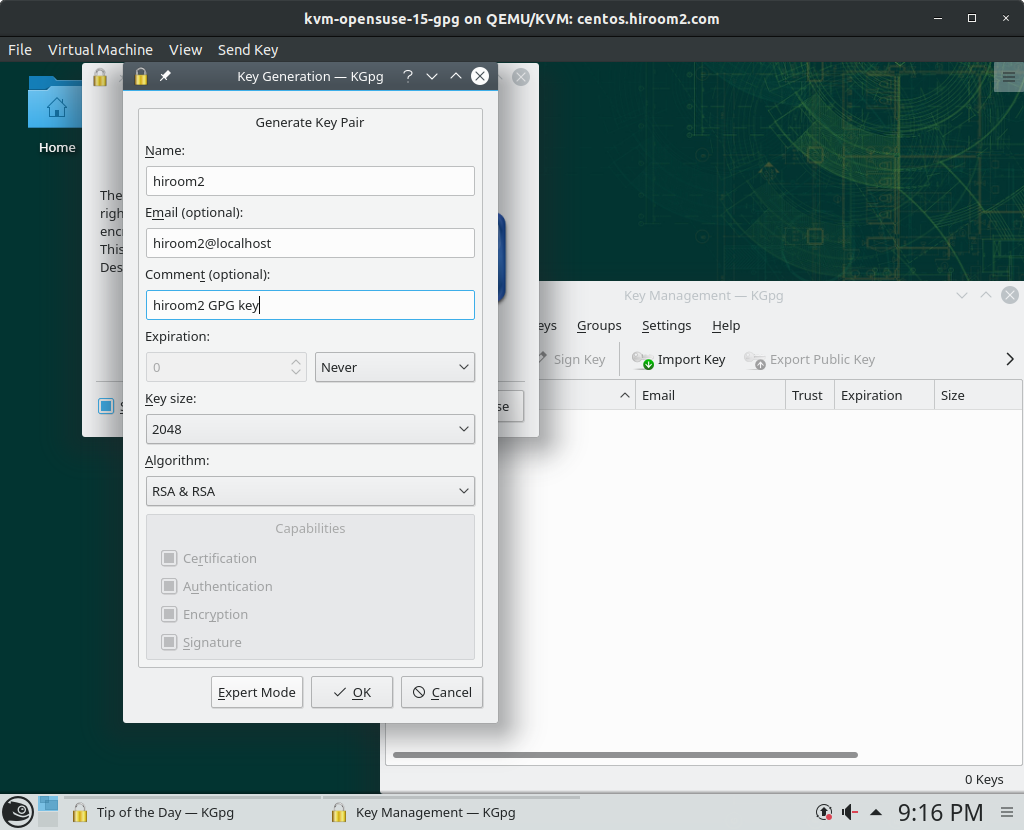
Input passphrase. Click "OK".
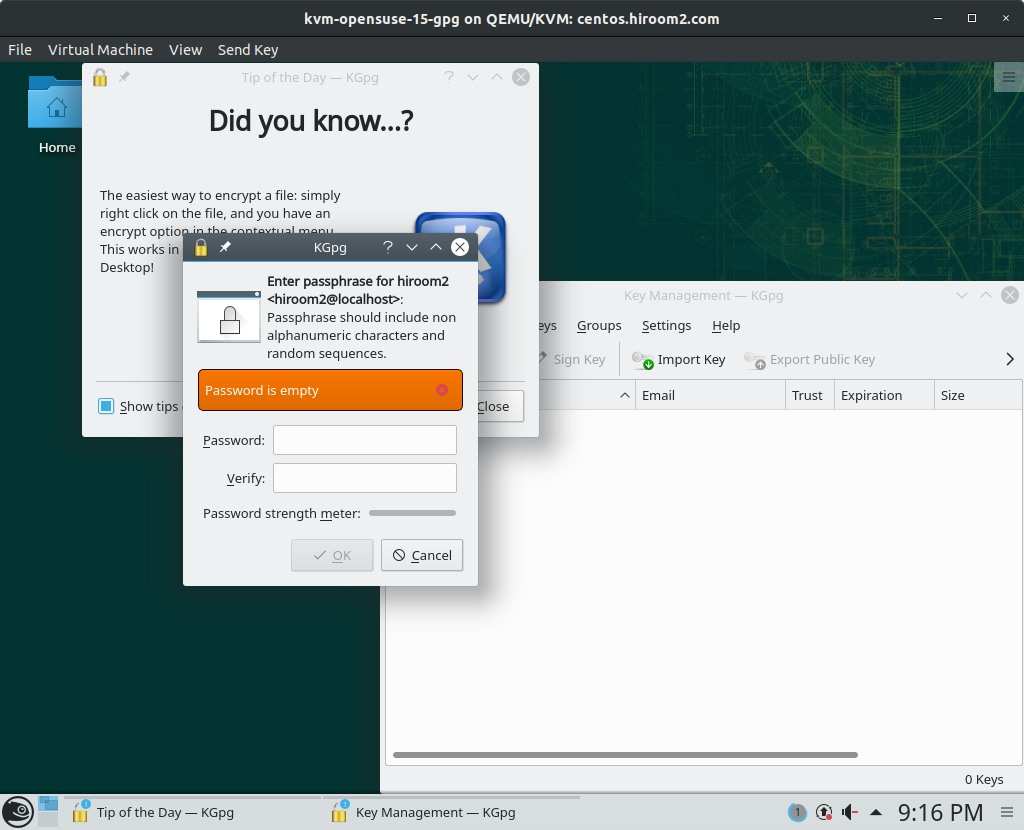
GPG key is created at ~/.gnupg. Click "OK" and close KGpg window.
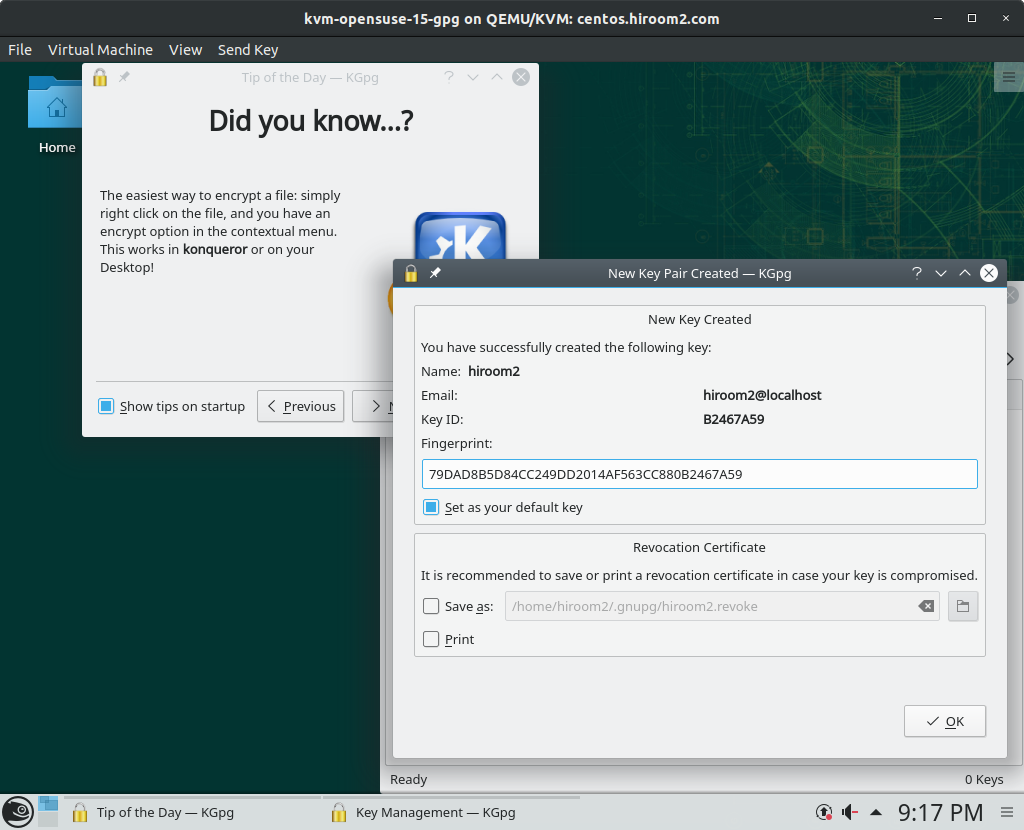
2 Create GPG key with gpg command
Create GPG key with gpg command interactively.
> gpg --gen-key
Input name.
Real name: hiroom2
Input Email.
Email address: hiroom2@localhost
Type "O".
Change (N)ame, (E)mail, or (O)kay/(Q)uit? O
If X window is enabled, X window will popup. Input passphrase.
┌──────────────────────────────────────────────────────┐ │ Please enter the passphrase to │ │ protect your new key │ │ │ │ Passphrase: ________________________________________ │ │ │ │ <OK> <Cancel> │ └──────────────────────────────────────────────────────┘
Confirm passphrase.
┌──────────────────────────────────────────────────────┐ │ Please re-enter this passphrase │ │ │ │ Passphrase: ________________________________________ │ │ │ │ <OK> <Cancel> │ └──────────────────────────────────────────────────────┘
GPG key is created at ~/.gnupg.
pub rsa2048 2018-06-07 [SC] [expires: 2020-06-06]
B7262B75DD4F7BFFEFC9ACF527362358E961C720
uid hiroom2 <hiroom2@localhost>
sub rsa2048 2018-06-07 [E] [expires: 2020-06-06]
2.1 Create GPG key with gpg –batch option noninteractively
Specify gpg command setting file with –batch option.
#!/bin/sh TMP=$(mktemp -t gpg.XXXXXX) cat <<EOF > "${TMP}" Key-Type: RSA Subkey-Type: RSA Key-Length: 2048 Subkey-Length: 2048 Expire-Date: 0 Name-Real: hiroom2 Name-Email: hiroom2@localhost Name-Comment: hiroom2 GPG key Passphrase: mypassword %commit EOF gpg --gen-key --batch "${TMP}" rm -f "${TMP}"